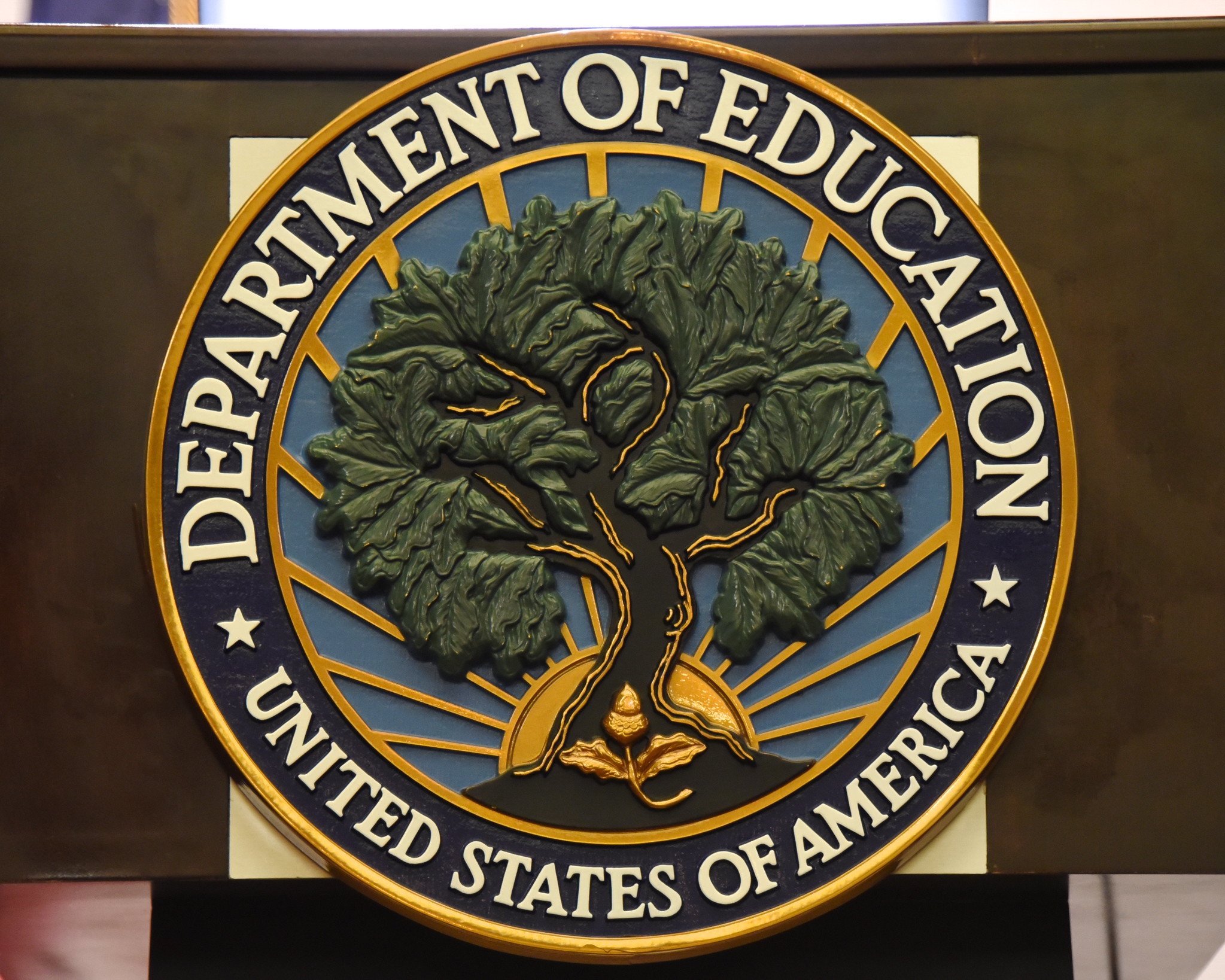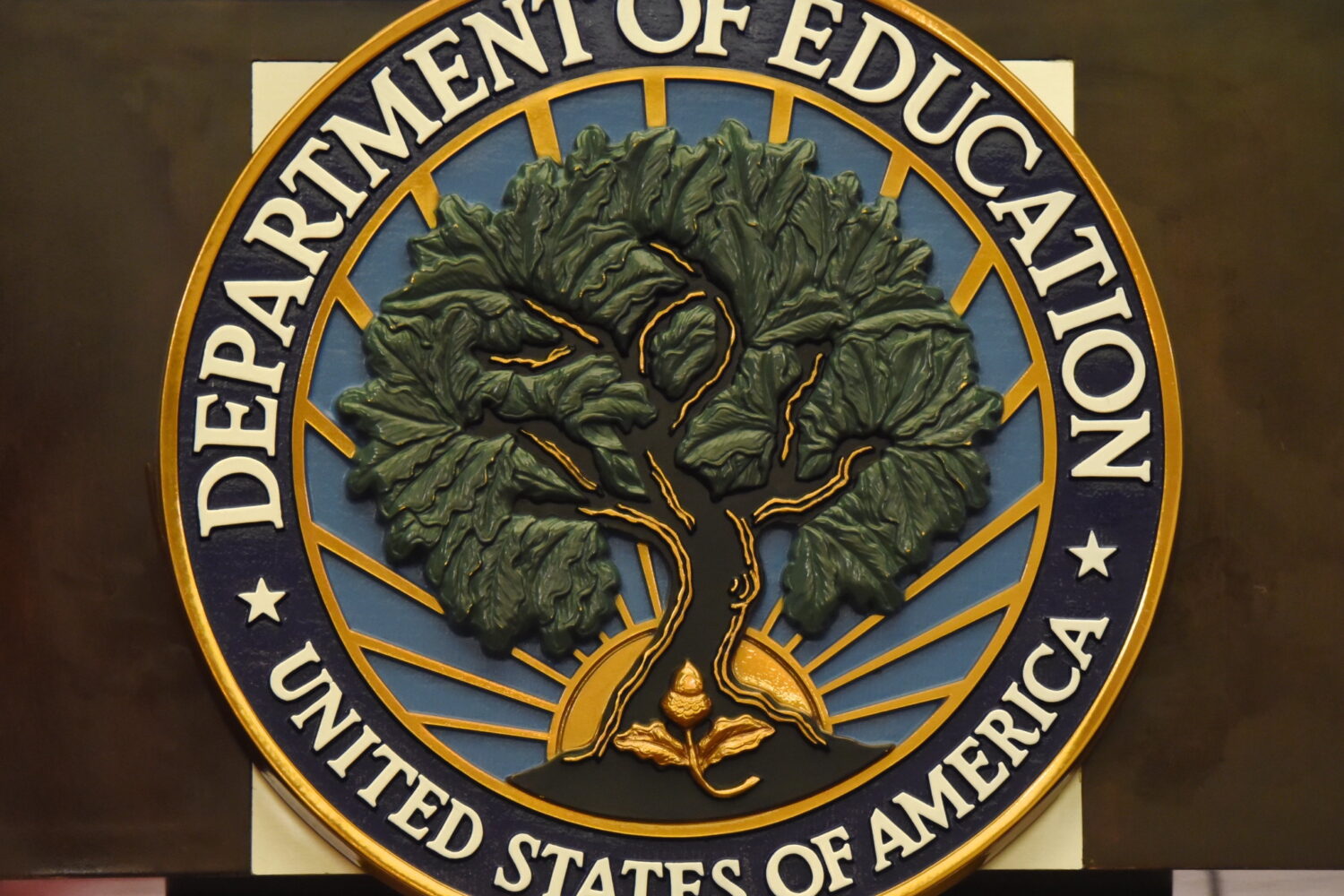The federal government is pushing five Northern Virginia school districts to prohibit transgender students from using the bathrooms and locker rooms that correspond to their gender identity. The US Department of Education’s Office for Civil Rights (OCR) announced that it believes the districts’ policies “violate the sex-based protections of Title IX,” a federal civil rights law that prohibits sex based discrimination in education programs.
In the press release, the OCR called on the districts to voluntarily comply with its policy change recommendations known as a “resolution agreement” within the next ten days. Those agreements would call on districts to adopt “biology-based definitions of the words male and female” and apply them to all of their Title IX policies. It also instructs them to rescind any policies that allow students to access “intimate facilities” that don’t correspond to their biological sex.
The five districts include: Alexandria City Public Schools, Arlington Public Schools, Fairfax County Public Schools, Loudoun County Public Schools, and Prince William County Public Schools. When Washingtonian reached out to each district to ask whether they planned changes to their policies, the districts all stated they are in the process of reviewing the agency’s findings.
If the districts don’t voluntarily comply, the federal government has a number of levers to coerce compliance, says Julia Martin, an attorney and the director of policy and government affairs at the Bruman Group, a law firm dedicated to education grants laws.
“OCR’s goal is voluntary compliance, and has been that way for a long time,” she says. “Historically, most of the cases will result in voluntary resolution because there is a threat of losing access to funds.” When school districts receive federal funding, Martin explains, they sign an agreement with the federal government where they pledge to follow all applicable civil rights laws including Title IX.
“What the first step usually is for an entity that doesn’t voluntarily comply with any program is a threat to withhold and then ultimately the withholding of administrative funds,” Martin says. From there, Martin says, the federal government can escalate by withholding programmatic funding. After that, other agencies can also suspend funding—for example, the USDA threatened to freeze funding in Maine over the state’s policies on transgender student-athletes.
In the case of these five districts, federal funding doesn’t necessarily make up the bulk of their annual revenue, but it does provide important funding for select programs particularly those that support low income students and students with disabilities. For example, out of Arlington Public Schools’ $844.6 million dollar budget for the 2026 fiscal year around $23 million comes from federal sources, but this money accounts for 57% of the district’s funding for school lunches and breakfasts.
The last step is criminal prosecution under the False Claims Act, according to Martin. Basically, this law says it’s illegal to make a claim for money from the US Treasury under false pretenses. Meaning if a school district receives federal funding under the condition it will follow federal civil rights laws and then proceeds to violate those laws the DOJ could prosecute the district.
School districts do have to knowingly violate the law in order to be found liable under the False Claims act, according to Martin. “If you have an entity like a district which says we are complying with federal civil rights laws as we understand them, we have advice from our attorneys that says that our interpretation is correct or at least viable or can be justified under law,” Martin says. “That is a valid defense against false claims act liability.”
But the law also presents financial risk to a district because a violation can involve triple damages. “If a district gets $100 million and is found in violation of the False Claims Act. The federal government can get that $100 million back, plus an extra $200 million as a penalty,” Martin explains. “I understand that that is the big threat that they have introduced in this administration.”
What’s significant in this case is that the districts can argue they are in compliance with federal civil rights laws because while Title IX might prohibit discrimination based on sex, it does not define what “sex” means, Martin noted.
Under President Biden, the Department of Education used this ambiguity to define sex expansively to include things like gender identity, sex characteristics, and gender presentation. President Trump’s administration has chosen a much more narrow definition of the term and has used this definition to allege states like Maine have violated federal laws.
But a big difference between these five districts and Maine is that unlike in that case, where the state sued the Trump administration, Governor Glenn Youngkin is in alignment with OCR. In 2022 his administration released statewide guidelines that said students should use school facilities consistent with the sex they are assigned at birth. Meaning, now if these five school districts are going to appeal the OCR’s findings or take the agency to court over their federal funding, they’ll likely have to go it alone.
“These school divisions have been violating federal law, deliberately neglecting their responsibility to protect students’ safety, privacy and dignity, and ignoring parents’ rights,” Youngkin said in a statement praising the OCR’s recent press release. “They got away with this behavior because the Biden Administration backed them up. Commonsense is back, with biological boys and girls in their own locker rooms and bathrooms, and boys out of girls sports.”
Martin predicts that the school districts will carefully assess their options in the coming days in particular because they can’t rely on any kind of state funding should their federal funding be withheld. “I am sure that the lawyers in these school districts are very busy trying to assess what their risk is; the financial risk is going to be a major consideration for these districts,” she says. “As is the fact that the state does not have their back on this.”
Correction: A previous version of this story listed the Arlington Public Schools budget for fiscal year 2026 as $823.6 million. This was the budget for fiscal year 2025, not fiscal year 2026.

















